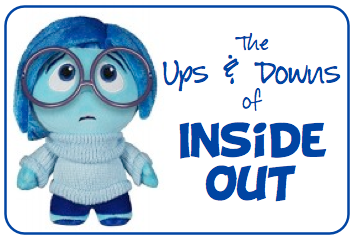|
I’m having a bad dream. “Loser! Liar!” References to parts of the male anatomy follow. Voices overlap, interrupt, mock and insult each other. As in many dreams, I can’t quite place where I am. At the elementary school where I work? The language fits, but the voices are not children’s voices. Soon the loudest, crudest, and most insistent voice overpowers the rest. That kid needs recess support, I think. The cat jumps on me and I’m awake. Ah. I’ve fallen asleep watching the Republican presidential debate. ***** The top three Republican candidates make middle school bullies look like elder statesmen. They make Jersey Shore look intelligent. They make the Three Stooges look suave. We’re in Opposite World, where being socially unacceptable is socially acceptable; saying every nasty, hateful thing that pops into one’s head is “telling it like it is,” not “being a jerk.” While I don’t think Donald Trump is nearly as awesome as he thinks he is, he is clearly the winner in this department. He gets tons of airplay because of his entertainment value. You have to watch because he’s so monstrously unpredictable. Is there nothing this guy won’t say? It's like word-vomit. But what he, his opponents, his supporters, and the media all either don’t understand (doubtful) or just don't care about (probable) is the fact that Donald Trump is the most terrible role model imaginable. He is making my job as a school counselor much, much harder. Mature adults (and I admit I don’t always qualify) believe it’s our mission to teach the children in our care to be kind and responsible citizens. There are many social skills involved and a certain amount of brain development required, so we spend a lot of time in public school teaching and modeling what a respectful community looks like. When we don't treat each other with common decency, the community falls apart. It becomes the opposite of "great." Therefore I offer to Mr. Trump and his opponents our basic elementary school rules for being part of a respectful community. Gentlemen, my students as young as Kindergarten can understand and follow these rules most of the time so I promise you: you can do it. 1. Use a one-inch voice. When you yell, it makes other people have uncomfortable thoughts and feelings about you. They feel stressed and stop hearing your words. I know it sounds weird, but the more calmly and quietly you speak, the more others will listen. 2. Don’t step on other people’s words. Interrupting is rude. It annoys others. Wait until it is your turn to speak. No one can hear you anyway when more than one person is talking at once. 3. Keep it in your thought bubble. No one can read your mind. That means you can’t get in trouble for what you think. You can, however, get into a world of trouble for what you say out loud. Think whatever you want, no matter how mean or rude or socially unacceptable it is, but don’t say it. We call this having a filter. 4. You don’t have to like everyone, but you do have to be respectful towards them. Let’s be honest: no one is friends with everybody. That’s okay. But it’s not okay to be mean to people you’re not friendly with. We want every person in our school/country to feel safe, welcome, and comfortable. 5. Be a bucket-filler. Bucket-fillers are people who make others feel good by being kind and thoughtful. Bucket-dippers say mean things and act selfishly. No one likes to be around a bucket-dipper. 6. You can’t threaten anyone. Ever. That means ever. 7. Be responsible. Being responsible means telling the truth even when it’s hard, admitting when you make a mistake, and apologizing if you’ve wronged someone. Good citizens are responsible. I tell students that it’s “grown-up” to behave this way, even though that’s apparently now a lie. Ironic. 8. Follow the Golden Rule. You probably learned about the Golden Rule when you were younger. It says, “Treat others the way you’d like them to treat you.” If you don’t like it when people call you names or say your ideas are stupid or say you don’t belong here and should crawl back under the rock you came from, then you shouldn’t say it to them. This is doubly true for people you don’t like, who are weaker than you, or who you disagree with. Why would we need a rule that tells us to treat only our friends nicely? Answer: we wouldn’t. Captain Obvious is not the author of the Golden Rule. In our school we have what’s called a “growth mindset.” That means we believe that anyone can get better at anything---even things that seem impossible---with practice and determination. Like any little-used muscle, your respect muscle will grow stronger with use. Please do us all a favor and start exercising it. Little pitchers have big ears.
5 Comments
My daughter and I saw Inside Out yesterday (at the theater! less than a week after it was released!). Did I love it? Yes! Was it as cool as I thought it was going to be? Absolutely! Will it become the new cornerstone of my counseling activities in the fall? Well... no.
First the good news. I thought the movie was brilliant (and judging by the woman down front loudly laughing her head off at some of the more adult humor, I wasn’t the only one). The visuals were amazing of course, and the story was engaging on multiple levels for adults and children. I laughed, I cried. There were some fantastic themes that I will absolutely be using in individual, small group, and classroom lessons (for a terrific list of some of them, see this blog post by Heather at The Helpful Counselor). In fact, I’ll probably try and create a few lesson plans and share them before the end of the summer, so check back in August. The very best thing---among so many---about Inside Out is its primary message: that all feelings have a purpose. Even the unpleasant ones. Of course as a counselor I already knew that, but this movie drove it home in a way that made me feel somewhat guilty. While I have a high comfort level sitting with kids’ unpleasant feelings, I’m also often a kind of cheerleader. “You’re right, that really stinks,” I’ll say, about some problem or another a kid is having. “BUT (insert Suzy Sunshine spin here)...” I need to tone that down, I think, in order to help my students feel more heard and understood. “Drive-by empathy” is probably not the best tool in my toolbox. So I loved the movie and learned an important lesson---all totally worth the $20 and 50,000 buttered popcorn calories. Now here’s where I become just a teensy bit critical about two things (my big BUTs...). First, Joy is responsible most of Riley’s memories, especially the core memories that form aspects (“islands”) of her personality. My immediate thought was that I work with a lot of kids whose core memories were not created by Joy, but by Anger or Fear. Do I then allow them to believe that the bad things that have happened to them define who they are? Ouch. I have to think more about how I’ll deal with this. Second, in my work I teach a lot of CBT (Cognitive Behavioral Therapy) concepts. The basic philosophy is that your thoughts about an event shape the way you feel about it and, therefore, how you respond to it. If you change your thoughts, you can often change your feelings and actions. To use a common example, if someone cuts me off in traffic I might think (because I drive in Massachusetts), “Hey, that asshat just purposely cut me off!” Then I get extremely angry and lay on my horn or give the one-fingered salute (because I drive in Massachusetts). However, if I stop and think that maybe that person simply didn’t see me, or is rushing to the hospital to see an injured family member, I’m not going to get angry. Or not as angry, because, Massachusetts. Here’s my biggest issue: throughout the movie, Riley is at the complete mercy of whichever of her feelings is at the control board in Headquarters. Her feelings control her behavior, and the vice is never versa (to coin a phrase). She’s not the captain of her own ship. Since one of my core beliefs is that we can change our feelings by changing our thoughts, I only give Inside Out 1.85 thumbs up (but zero one-fingered salutes, so that's good). I'll definitely use it in counseling, but will put my own spin on it. So what else is new? I would love to hear what you think! Do you agree, or do you think I’m being a picky asshat? Discuss. Complete the following statement:
Spring is in the air, a time when educators' thoughts turn to: a) summer vacation b) a new season of The Voice c) state-mandated MCAS testing, the results of which are considered the single most important indicator of what a child has learned and---by extension---how effective his or her teacher is. Ignoring the fact that spring is most emphatically NOT in the air (at least here in northeast Massachusetts where this afternoon it was 16 degrees), the correct answer is: d) all of the above. MCAS stands for Massachusetts Comprehensive Assessment System. "Comprehensive" in grades 3 and 4 refers only to reading and math skills, as measured by a mostly multiple-choice bubble test. It's "comprehensive" in the way my physical would be if a bunch of paper-pushers from the insurance company told my doctor that my entire check-up should consist of him looking in my ear. |
Author
|




 RSS Feed
RSS Feed